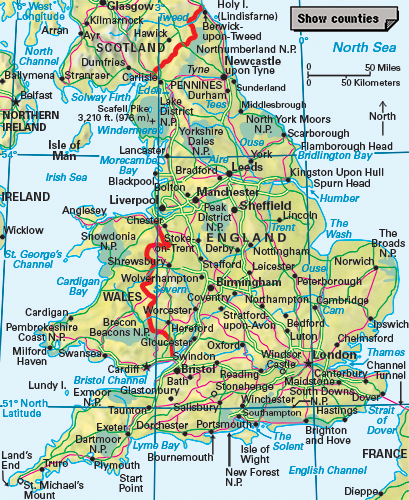Reading (pop. 174,224) is a unitary authority (local government area) in southern England. The town of Reading lies on the River Kennet near its junction with the River Thames. Reading is 36 miles (58 kilometers) west of central London, the British capital. Reading has some light-engineering and technology industries. Several large companies have their headquarters in the town.

Roman soldiers arrived in the Reading area during the conquest of Britain, which began in A.D. 43. Later, Anglo-Saxons and Normans settled the area. The town was a frequent battleground during the English Civil War in the 1640’s. Reading flourished as a market town during the 1700’s and 1800’s. The town became known for its main industries, the “three B’s”: beer, bulbs (seeds), and biscuits (cookies). The bulb and biscuit industries left Reading in the late 1900’s, and the last Reading brewery closed in 2010.
Reading has the remains of a Norman abbey, built in 1121, where King Henry I is buried. The abbey gateway is now a museum. The town is also home to Reading University, which is well known for its agricultural school. Reading School, a traditional boarding school for boys, was founded in 1125.
British author Jane Austen attended the Reading Ladies’ Boarding School in the 1780’s. Irish-born author and playwright Oscar Wilde was imprisoned in Reading in the 1890’s. His poem The Ballad of Reading Gaol (1898) is based on his experiences in the town prison.
